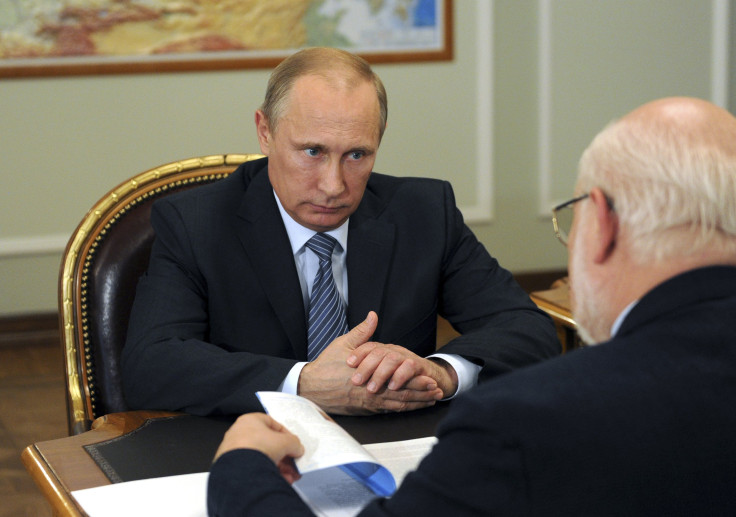Will Russia Cut Off Gas To Europe? Morgan Stanley Analysts Think So

Russia could cut off Europe’s natural gas supplies in retaliation for the package of U.S. and European sanctions adopted on Tuesday, according to Morgan Stanley analysts. That would send energy costs soaring and leave European countries scrambling to find alternatives in time for the winter, when they need gas the most.
“We think that Russia could block transit of gas through Ukraine to Europe, pending settlement by [Ukrainian oil and gas company] Naftogaz of outstanding debt and might also allow a decline in oil exports, which could add a geopolitical risk premium to the oil price," analysts Jacob Nell and Alina Slyusarchuk wrote in a Tuesday research note obtained by International Business Times.
Whether Russian President Vladimir Putin will actually do that depends on if he takes a pragmatic or patriotic response to the international penalties, which aim to end Russia’s support for separatists in Ukraine, they said.
“Putin now faces a stark choice between a pragmatic response – supporting de-escalation in Ukraine in return for neutrality, decentralization and the lifting of sanctions – or what we characterize as a ‘patriotic’ response, in which Putin focuses on support to the pro-Russian separatist movement in Ukraine,” Nell and Slyusarchuk wrote. The latter move would “trigger a further tightening of sanctions and deepen the divide with the West.”
Kurt Oswald, a Middle East partner at the global consultancy A.T. Kearney, said that Europe would suffer in the short term if Russia blocked gas exports. He noted that Russia’s state-owned Gazprom exported 162 billion cubic meters of gas to Europe last year – about one-third of Europe’s total gas consumption – and that replacing those supplies would be difficult and costly.
“There is a strong dependency of Europe on the Russian gas supply” he told IB Times by phone from Vienna last week. “Russia is still in a quite comfortable position, short and midterm.”
Still, Oswald seemed less convinced than the Morgan Stanley analysts that Russia would choose this option. “Russia is still dependent on the export of its resources,” he explained. “From that perspective, it’s most likely they would not cut the gas supplies to Europe. But will Putin behave completely rationally? I’m not 100 percent sure.”
“I don’t see Russia turning off the taps,” Michael Geary, a global Europe fellow at the Wilson Center in Washington, told IB Times on Tuesday. “Reducing those [gas revenues] would be counterproductive for them.”
© Copyright IBTimes 2024. All rights reserved.





















